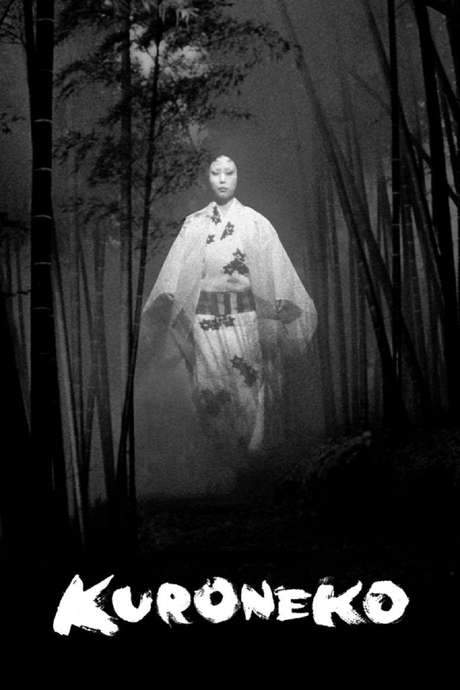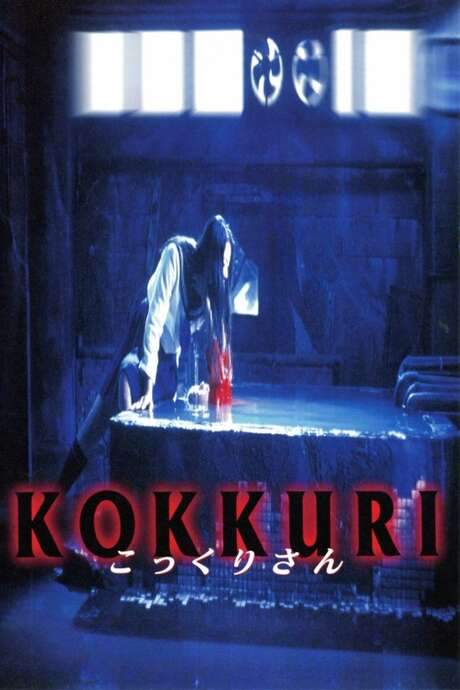Noriko's Dinner Table 2007

A teenage girl escapes her ordinary life and travels to Tokyo, seeking refuge in the city’s vibrant and shadowy nightlife. There, she discovers a unique organization that provides companionship and familial support for those seeking connection. As she becomes involved with this unusual group, she finds herself increasingly entangled in their unconventional practices and begins to question the nature of reality and belonging.
Does Noriko's Dinner Table have end credit scenes?
No!
Noriko's Dinner Table does not have end credit scenes. You can leave when the credits roll.
Meet the Full Cast and Actors of Noriko's Dinner Table
Explore the complete cast of Noriko's Dinner Table, including both lead and supporting actors. Learn who plays each character, discover their past roles and achievements, and find out what makes this ensemble cast stand out in the world of film and television.
No actors found
External Links and Streaming Options
Discover where to watch Noriko's Dinner Table online, including streaming platforms, rental options, and official sources. Compare reviews, ratings, and in-depth movie information across sites like IMDb, TMDb, Wikipedia or Rotten Tomatoes.
Ratings and Reviews for Noriko's Dinner Table
See how Noriko's Dinner Table is rated across major platforms like IMDb, Metacritic, and TMDb. Compare audience scores and critic reviews to understand where Noriko's Dinner Table stands among top-rated movies in its genre.

59
Metascore
6.7
User Score


64%
TOMATOMETER

80%
User Score
Take the Ultimate Noriko's Dinner Table Movie Quiz
Challenge your knowledge of Noriko's Dinner Table with this fun and interactive movie quiz. Test yourself on key plot points, iconic characters, hidden details, and memorable moments to see how well you really know the film.
Noriko's Dinner Table Quiz: Test your knowledge on the intricacies and character dynamics of 'Noriko's Dinner Table'.
What is the name of Noriko's online refuge for Japanese teenagers?
Haikyo.com
TokyoRentals
SocialSphere
TeenConnection
Show hint
Full Plot Summary and Ending Explained for Noriko's Dinner Table
Read the complete plot summary of Noriko's Dinner Table, including all major events, twists, and the full ending explained in detail. Explore key characters, themes, hidden meanings, and everything you need to understand the story from beginning to end.
The story unfolds across five distinct chapters, each named after a central character: Noriko, Yuka, Kumiko, and Tetsuzo. This non-linear narrative style allows for an intricate examination of the lives of its protagonists, weaving through the thoughts and feelings of Noriko, Yuka, and Tetsuzo.
Seventeen-year-old Noriko Shimabara (Kazue Fukiishi) is a quiet and reserved girl living with her serene family in Toyokawa, Japan. Her household includes her sister Yuka (Yuriko Yoshitaka), mother Taeko (Sanae Miyata), and father Tetsuzo (Ken Mitsuishi). Noriko feels stifled by her small-town life and yearns for the vibrancy and freedom that Tokyo seems to promise. This longing intensifies upon discovering that her childhood friend Tangerine (Yoko Mitsuya) has blossomed into a successful idol.
Opposing her dreams, Noriko’s father is determined for her to attend a local university after high school, leaving Noriko feeling disconnected from her family. Searching for validation elsewhere, she finds refuge on Haikyo.com, an online community for Japanese teenagers, where she develops new connections that provide her with a sense of belonging.
As December 10, 2001 approaches, Noriko’s discontent escalates, prompting her to make a bold choice—to abandon her mundane life in Toyokawa and venture to Tokyo to meet Ueno Station 54, the mysterious leader of Haikyo.com. Upon arriving in the bustling city, she reaches out to Kumiko (Ueno Station 54), and they arrange a secret meeting at Locker #54 in Ueno Train Station. It soon becomes evident that Kumiko is devoid of a conventional family structure, having been supplied with a fabricated one by I.C. Corp., a company providing rental family services for those seeking the fleeting joys of family life.
However, tragedy strikes six months later when a shocking incident occurs—54 young women, believed to be affiliated with I.C. Corp., take their lives by jumping in front of a train at Shinjuku Station. As Noriko and Kumiko witness this heartbreaking event, it becomes apparent that these girls were merely playing their assigned roles in the tragic tale crafted by the organization.
Meanwhile, back in Toyokawa, Yuka, who is also engaged with Haikyo.com, begins to wonder if Noriko was involved in the mass suicide. This introspection catalyzes Yuka’s creativity, leading her to pen a story about how her father would react if she were to vanish, intentionally leaving behind clues that hint at her own departure to Tokyo to join I.C. Corp.
Tetsuzo grapples with the emotional fallout of losing his daughter Yuka, while his wife Taeko’s mental health deteriorates, culminating in a heartbreaking outcome. As a journalist, Tetsuzo delves into the enigma surrounding his daughters’ disappearances, uncovering a shocking reality that leaves him shattered—his daughters had been acutely aware of his thoughts and actions, while he had remained blind to their emotional struggles. His investigation leads him into a whirlpool of sensationalist media speculation, suggesting that his daughters may have become entwined in a shadowy cult known as the “Suicide Club.”
In desperation for truth, Tetsuzo seeks answers from I.C. Corp, only to be confronted with an explanation regarding social roles that seems to defy conventional wisdom. To gain deeper insights, he recruits an old friend, Ikeda (Shirou Namiki), who masquerades as a client and rents Kumiko as his wife, with Noriko and Yuka assuming the roles of his daughters, dubbed Mitsuko and Yoko. Tetsuzo creates an unsettling environment by relocating to a Tokyo apartment that mirrors their former home, even replicating his old furniture to invoke an eerie sense of familiarity.
As they settle into this artificial family dynamic, underlying tensions begin to surface. While Ikeda sends Kumiko out on an errand, Tetsuzo reveals his true identity to Noriko and Yuka, only to be met with cold detachment from them, who insist on their roles as Mitsuko and Yoko. Unraveling further chaos ensues when enforcers from I.C. Corp arrive with violent intentions, prompting Tetsuzo to fight for survival, resulting in a grisly confrontation in the living room.
Oblivious to the turmoil, Kumiko returns from her errand, attempting to maintain the facade of normalcy. However, her startling suggestion that Tetsuzo must kill her in order to flee with Noriko and Yuka sends waves of confusion through the group, particularly bothering the sisters, who grow increasingly wary of the dark undercurrents surrounding their situation. Yuka eventually disrupts the moment by requesting a “session extension”—a phrase that hints at deeper implications.
During an unsettling dinner, Tetsuzo starts treating Kumiko like his wife, affectionately calling her Taeko. Though Noriko and Yuka play along, Yuka’s insomnia becomes evident, and she sneaks away into the night, shedding the weight of her assumed identity.
Meanwhile, Mitsuko awakens, exchanging a poignant farewell to Yuka, her lost childhood, Haikyo.com, and her fragmented self. With newfound clarity, she proclaims, “I am Noriko” — a statement that holds the key to the mysteries that have burdened Tetsuzo’s life. As the gripping narrative unfolds, it reveals a span of two years fraught with cycles of hope and despair, marking the end of an eighteen-month period since the life-altering tragedy that forever changed those connected to it.
Uncover the Details: Timeline, Characters, Themes, and Beyond!

Coming soon on iOS and Android
The Plot Explained Mobile App
From blockbusters to hidden gems — dive into movie stories anytime, anywhere. Save your favorites, discover plots faster, and never miss a twist again.
Sign up to be the first to know when we launch. Your email stays private — always.
Watch Trailers, Clips & Behind-the-Scenes for Noriko's Dinner Table
Watch official trailers, exclusive clips, cast interviews, and behind-the-scenes footage from Noriko's Dinner Table. Dive deeper into the making of the film, its standout moments, and key production insights.
Noriko's Dinner Table Themes and Keywords
Discover the central themes, ideas, and keywords that define the movie’s story, tone, and message. Analyze the film’s deeper meanings, genre influences, and recurring concepts.

Unlock the World of Movies with Our Comprehensive Wiki
Dive into our Movie Wiki for in-depth film encyclopedia entries, including cast biographies, production trivia, plot synopses, behind-the-scenes facts, and thematic analyses. Whether you’re researching iconic directors, exploring genre histories, or discovering hidden easter eggs, our expertly curated movie database has everything you need to fuel your cinematic passion.

Similar Movies To Noriko's Dinner Table You Should Know About
Browse a curated list of movies similar in genre, tone, characters, or story structure. Discover new titles like the one you're watching, perfect for fans of related plots, vibes, or cinematic styles.
Quick Links: Summary, Cast, Ratings, More

What's After the Movie?
Not sure whether to stay after the credits? Find out!
Explore Our Movie Platform
New Movie Releases (2025)
Famous Movie Actors
Top Film Production Studios
Movie Plot Summaries & Endings
Major Movie Awards & Winners
Best Concert Films & Music Documentaries
Movie Collections and Curated Lists
© 2025 What's After the Movie. All rights reserved.




























